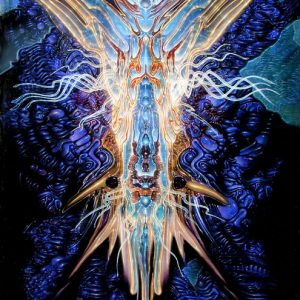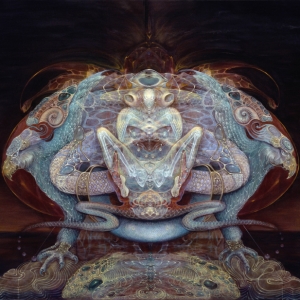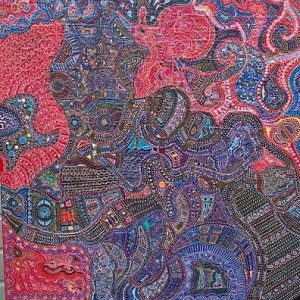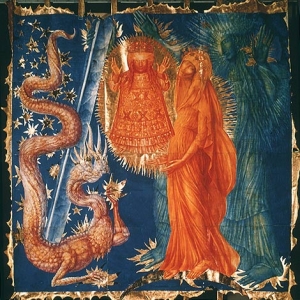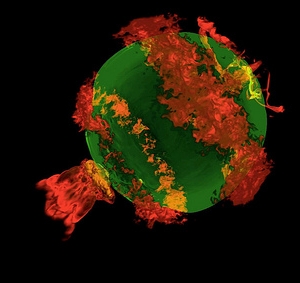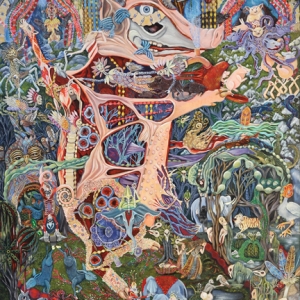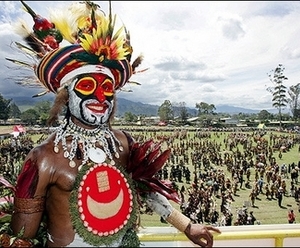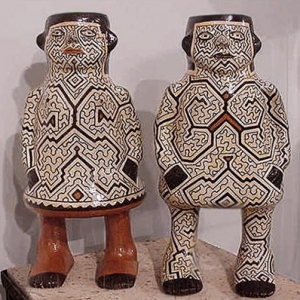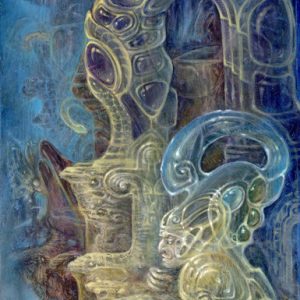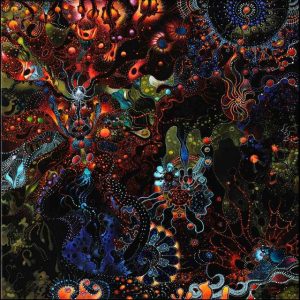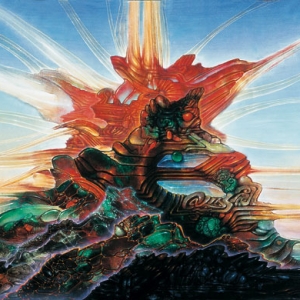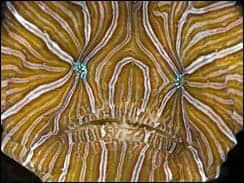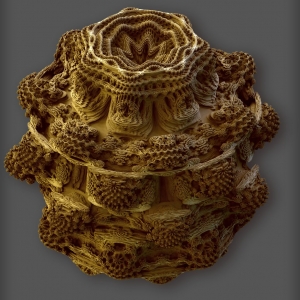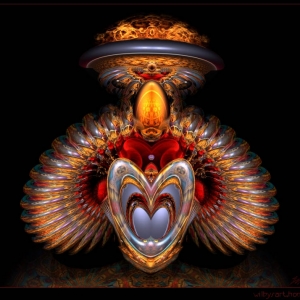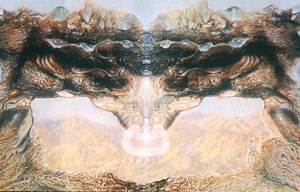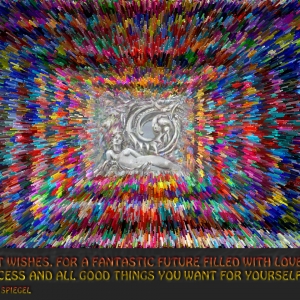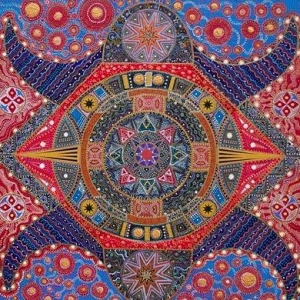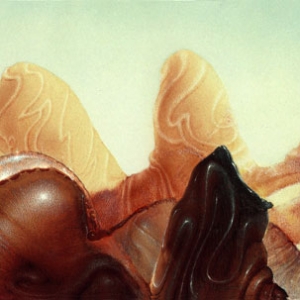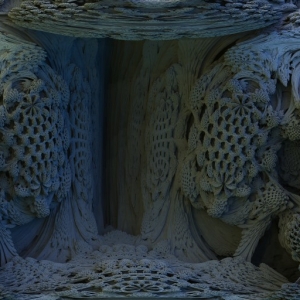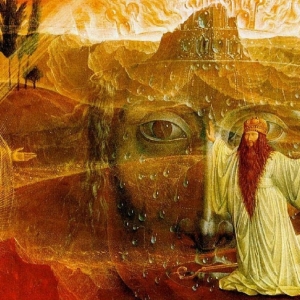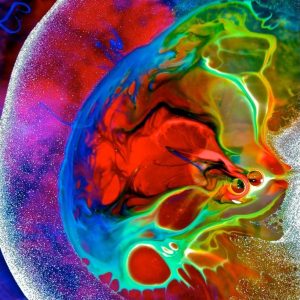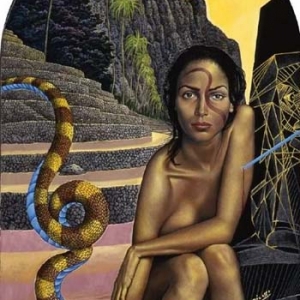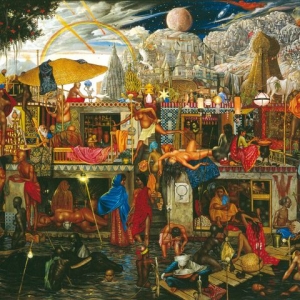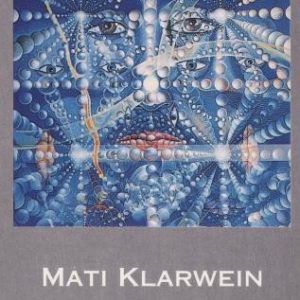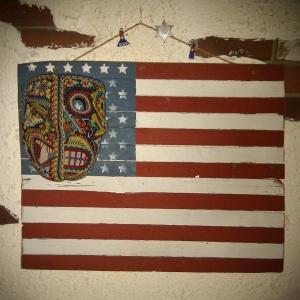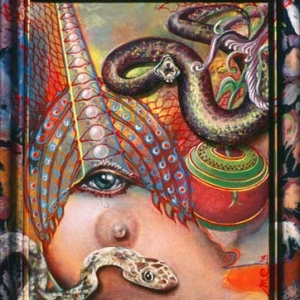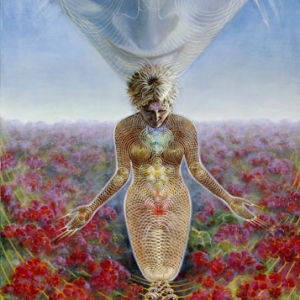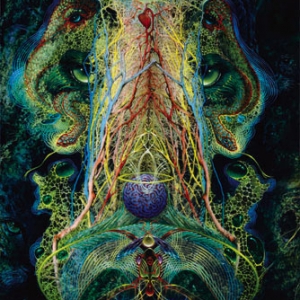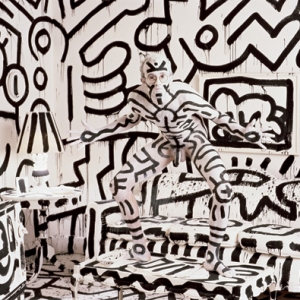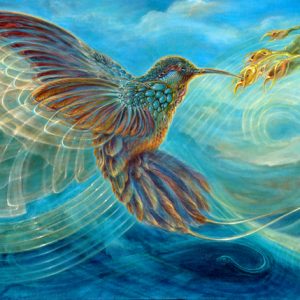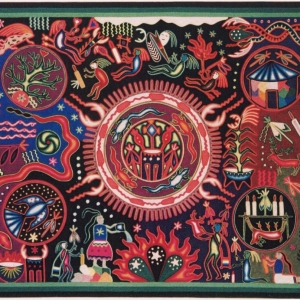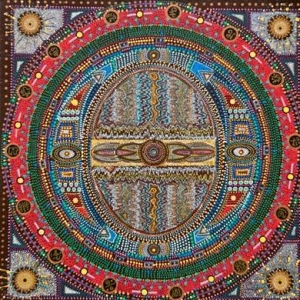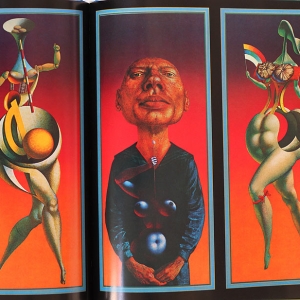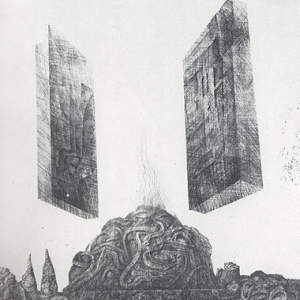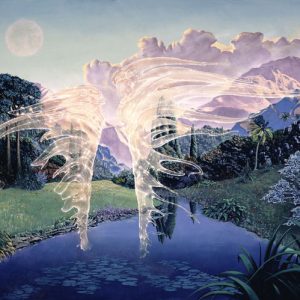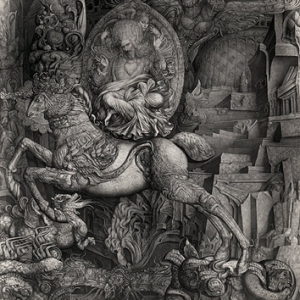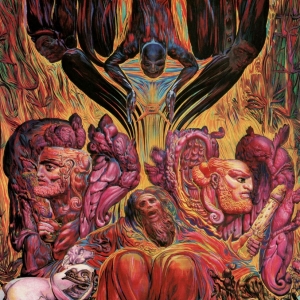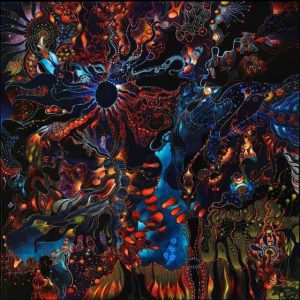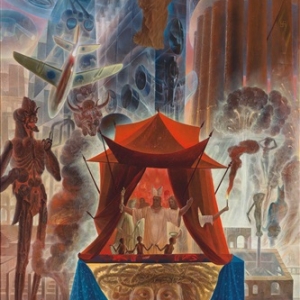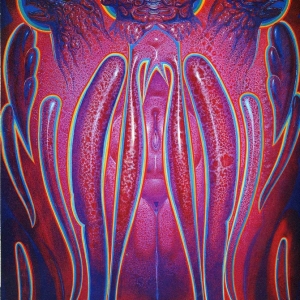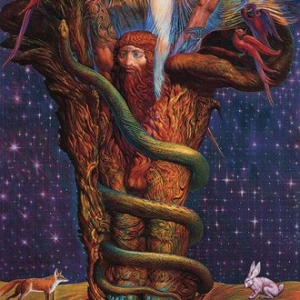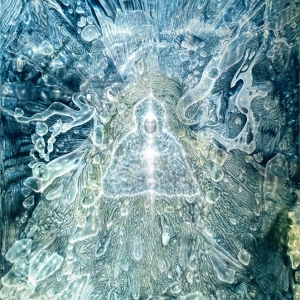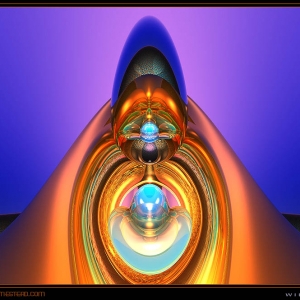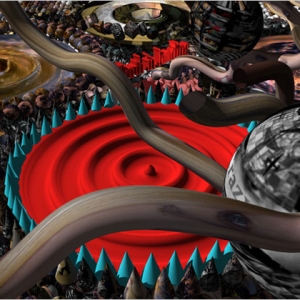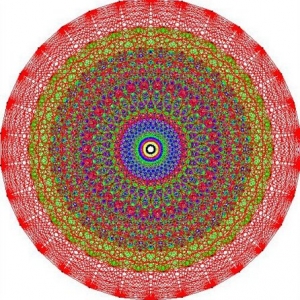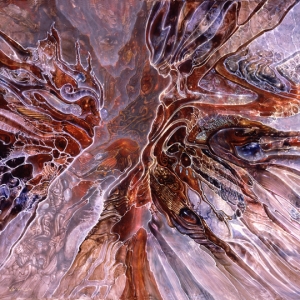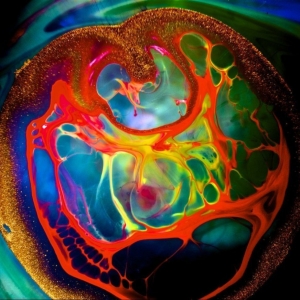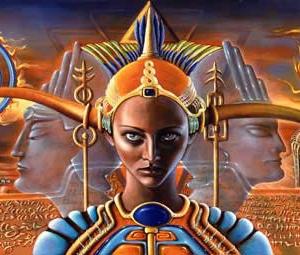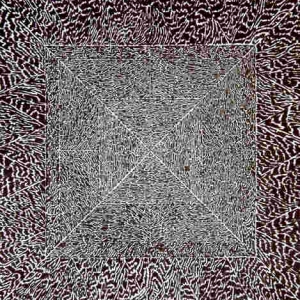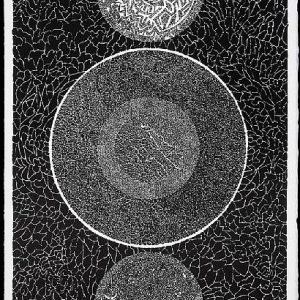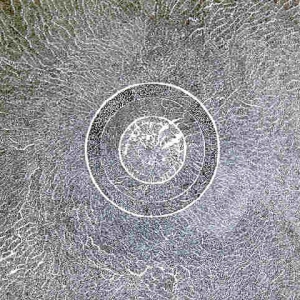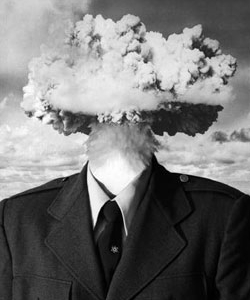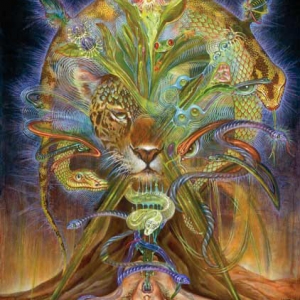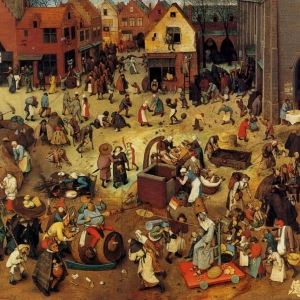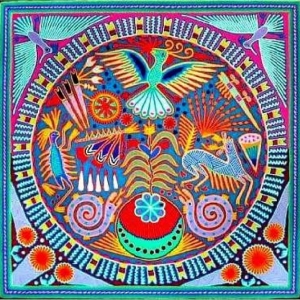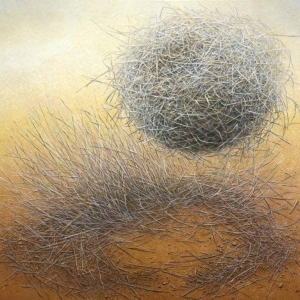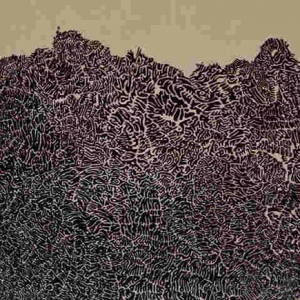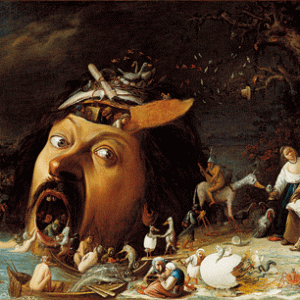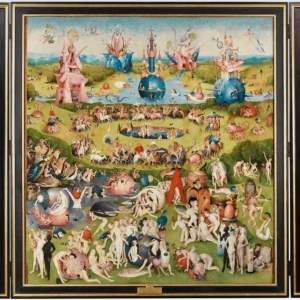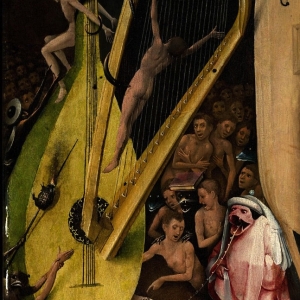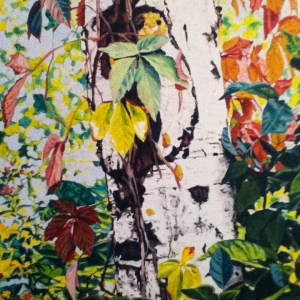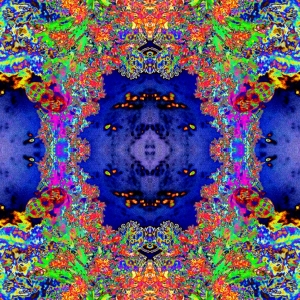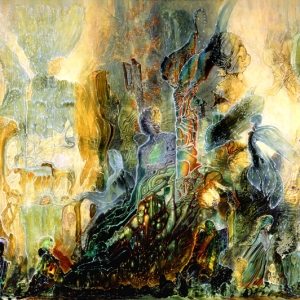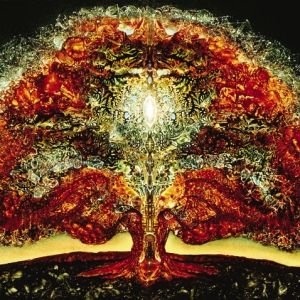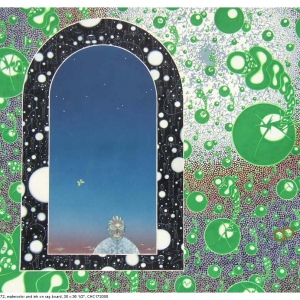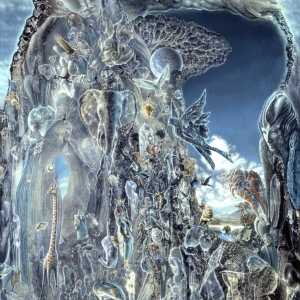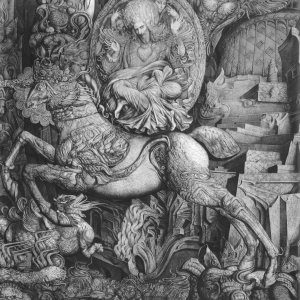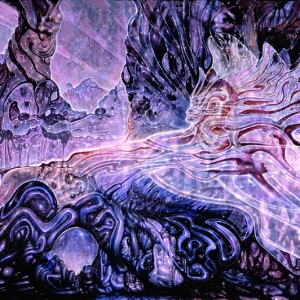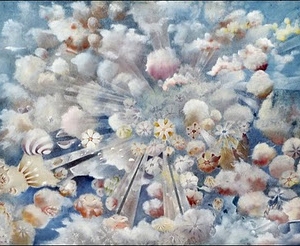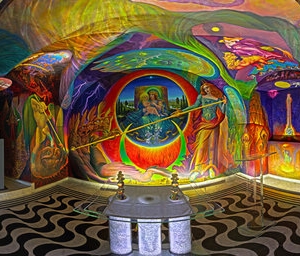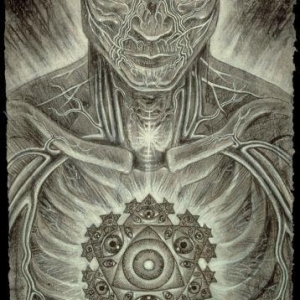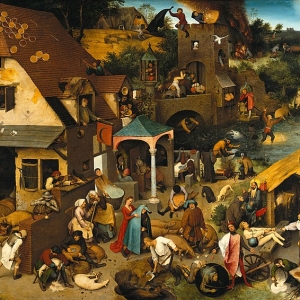
Portrayed in The New Yorker as “an admired West Coast experimentalist, who is an innovative performer on the harp as well as an unusually inventive composer,” Anne LeBaron’s compositions have been performed around the globe at venues in Italy, Mexico, Sydney, Vienna, Sweden, Germany, Brazil, France, Kazakhstan, New York, Los Angeles, and elsewhere. Her seven operas celebrate legendary figures such as Pope Joan, Eurydice, Marie Laveau, the American Housewife, and Aldous Huxley. LeBaron was granted one of the first Discovery Grants from Opera America for LSD: Huxley’s Last Trip. Reviewing Crescent City, her opera produced in Los Angeles by The Industry, The LA Times wrote, “She is fluent in grandly operatic manner and in the language of the avant-garde…a perspective that is always changing, and always captivating.”
Prior to earning a doctorate from Columbia University, she won a Fulbright Full Alpert Award in the Arts, a Fromm Foundation commission award, and a Guggenheim, among many other awards. In 2018, she was awarded a residency at the Bogliasco Study Center for the Arts and Humanities in Italy, and a Banff Centre Leighton Artist Residency in Canada.
Her orchestral works have been commissioned and performed by the National Symphony Orchestra, the Los Angeles Philharmonic, and others. Her chamber and solo compositions are widely performed and recorded. Premieres in 2018 included two new installments for a twelve-part series, The Well-Read Clavier, marrying literature from around the world with piano. Partizan, for piano solo and actor, drew upon the writing of Beppe Fenoglio. It was commissioned by the Fondazione Ferrero and first performed at the Alba Music Festival by Lorenzo Marasso and Guido Tonini Bossi. (SEEFest—South East Film Festival in Los Angeles—featured a preview of Partizanin 2019.) Les Confidences du Salon, with a text by Debussy infused into the piano part, was commissioned by Piano Spheres in Los Angeles for Mark Robson. Projects now underway include the completion of LSD: Huxley’s Last Trip, an opera about the checkered history of psychedelics in the U.S. with librettists Gerd Stern and Ed Rosenfeld; and This Lingering Life, an opera on the subject of karma through the lens of seven updated Noh plays, with librettists Mark Campbell and Chiori Miyagawa.
In the fall of 2017, she was a featured artist at the Totally Huge New Music Festival in Perth in October 2017, touring extensively in Australia and New Zealand. She was invited to give the Festival keynote address, entitled “Sonic Ventures in Post-Truth Surrealism: Raudelunas, the Rev. Fred Lane, and Huxley’s Last Trip,” soon to be published in the 2019 peer-reviewed issue of Sound Scripts, an online Australian journal. LeBaron served on the composition faculty of the Mostly Modern Festival in the summer of 2019, in Saratoga Springs, NY, where her chamber works Noh Reflectionsand Waltz for Quintet were performed. Kamma Vipaka, a new work for flute, percussion, and electronics, commissioned by the Swedish Arts Council for Wave Dash, premieres in Sweden in August 2019.
Recordings of her music are available on Mode, New World Records, Ear-Rational, Innova, Music & Art, pfMentum, and Albany. A new 2-CD recording scheduled for release in 2019, Unearthly Delights, will featuretwelve compositions from the recent past.
A member of the CalArts School of Music faculty, LeBaron teaches in the Composition and Experimental Sound Practices program. She currently serves as Chair of the Board of the American Composers Forum, a national organization advocating for composers throughout the U.S.
Gerd Stern is a founder of the 1960’s communal arts collaborative, USCO, headquartered in an old church building in Garnerville, Rockland County, New York. USCO’s work in multi-media productions and in international museum exhibitions was featured on two LIFE Magazine covers and has been the subject of many reviews and articles. Among those was a chapter in Fred Turner’s volume From Counterculture to Cyberculture, and a 2010 Art Journal article about the history of USCO. As president of Intermedia Foundation, Stern presented USCO’s work as part of the “Summer of Love” exhibition in three European museums, at New York’s Whitney Museum of American Art, and at the Centre Georges Pompidou’s “Traces du Sacre” in Paris. His oral history was published by the University of California’s Bancroft Library Regional Oral History Office and he presented a seminar titled “McLuhan Plus” on prophetic technology at ZKM, in Karlsruhe. He is a contributor to the anthology Real Virtuality published in Germany and by the Columbia University Press. He presently lives in New York City and is busy writing poetry and a memoir and exhibiting USCO and his own artworks in galleries and museums globally.
Edward Rosenfeld is a writer and editor. His screenplay, MK-ULTRA, was the original basis for the libretto for the opera: LSD: Huxley’s Last Trip. In the early 1960s, Rosenfeld founded the Natural Church, focused on using psychedelics as spiritual sacraments. As psychedelics became illegal, one of his early books, The Book of Highs, focused on more than 250 ways to alter consciousness without drugs. This was an effort to make sure expanded consciousness was not made illegal. A new, revised and updated edition of The Book of Highs was published in 2018. Rosenfeld was a founding editor of Omni Magazine. From 1984 until 2017, he edited and published a monthly newsletter, INTELLIGENCE – The Future of Computing, later subtitled: Making the World Work. It covered advanced computing and communications developments and trends, focusing on neural networks and machine intelligence. His other books include three volumes on neural networks, one: Talking Nets – An Oral History of Neural Networks. He has also completed the original Oral History of Gestalt Therapy. His latest endeavor: www.worldworking.net.
